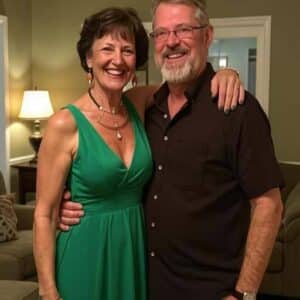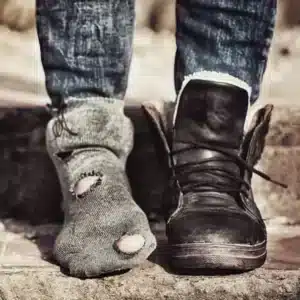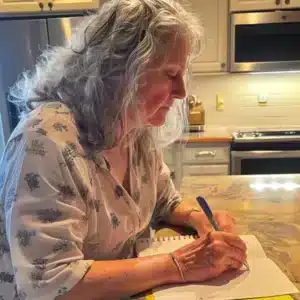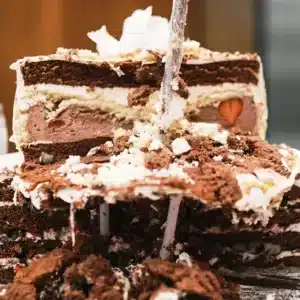My sister told me I couldn’t come to her “childfree” wedding because I’m 19. Then she sent the Amazon registry—front and center, a $300 blender—with a cheery reminder that I was “still family.” I told her I was broke and went to bed with my stomach burning. By morning, I knew exactly what to send: a handwritten letter and a box of our childhood.
Marissa is 28—straight-A’s, perfect fiancé, and an “adults-only” wedding that was supposed to look like a magazine spread. I was still in high school when she got engaged, but it didn’t hit me until the formal invite arrived with my name missing. I texted to make sure it wasn’t a mistake.
“Hey, don’t take it personally. It’s a childfree event. You’re technically still a teen.”
It stung. I’m in community college, working part-time to help with rent, paying my own phone bill, saving for a used car. Not exactly a toddler with sticky hands.
A week before the big day, a group email landed: “Marissa & Lucas Wedding Registry 💍” with a note:
“Even if you can’t be there, you’re still family! Here’s how you can contribute to our future!”
The list was a parade of pretty, pricey things—$299.99 blender, $85 monogrammed towels, $499 robot vacuum, an “unlimited” wedding fund. I replied:
“Hey, wish I could help, but I’m broke.”
Silence.
So I climbed into the attic and pulled a dusty shoebox from the back. Inside: crayon drawings, lopsided school photos, ticket stubs from movies we snuck into, and the friendship bracelet I made her at ten—the one she wore until the thread gave out. I added a note:
“Since I can’t be at your wedding, here’s a reminder from the one girl who adored you more than anyone—the sister who built blanket forts with you, snuck midnight snacks, and cried with you when your first boyfriend dumped you. I might not be ‘old enough’ to attend, but I’m old enough to remember when we were best friends. Congratulations. Don’t forget who you were before all this.”
No “love,” just my name. I wrapped it and overnighted it to the venue.
Two days later, Instagram got weird. The wedding planner’s account went private. Marissa’s maid of honor posted: “Some people really know how to ruin a good day.” My cousin Jasmine filled me in later: they’d opened gifts during bridal prep, expecting crystal and cash. Marissa opened mine, read my letter out loud, stopped halfway, and burst into tears—the ugly, shaking kind. She locked herself in the dressing room for nearly an hour, telling Brielle she didn’t feel like herself anymore; that the pressure to be perfect had crowded out everything soft and real. She said cutting me out hurt in a way she hadn’t let herself feel.
The wedding went forward. The photos were gorgeous. But something had shifted.
Three days later, there was a knock. No lashes, no heels—just my sister, holding a deli bag from our childhood spot. Turkey, extra pickles, my favorite.
“Can I come in?”
We ate on the couch in silence until she pulled the bracelet from her pocket.
“I kept it,”
she whispered.
“Even when I didn’t wear it, it lived in my drawer.”
I didn’t tease. I didn’t gloat. I just nodded.
“I’m sorry,”
she said.
“I thought I was building the life I wanted, but somewhere between hashtags and Pinterest boards, I forgot who I am. And I definitely forgot you.”
I wanted to say, “No kidding.” Instead:
“I missed you too.”
Then the real twist. She and Lucas had postponed the honeymoon—not because of me, but because of them. After the reception, he told her she felt distant, like she was playing a role. They stayed up until 4 a.m., talking about values, priorities, family. He asked who she wanted at their next milestone, who she’d call when things got hard. She said my name. First.
The next week, I went to their place for spaghetti and garlic bread—no place cards, no dress code, just laughter. She handed me a card:
“You gave me the best gift. You reminded me who I am. That’s worth more than any blender.”
We cried the good kind. It didn’t erase the sting of being excluded, but she started showing me every day that I mattered—that I wasn’t a child to her, I was a sister. A month later, she hosted a “sister brunch,” just us. Heart-shaped pancakes, photo albums, and the pirate Halloween shot where she’d crafted me a cardboard foil sword.
“See?”
she grinned.
“You’ve always been my partner in crime.”
That’s when I knew the message had landed. People change, and sometimes they forget themselves in the rush to become who they think they should be. Marissa thought growing up meant cutting ties with the past. A box of memories and a plain letter brought her back.
The gift wasn’t expensive. It was a reminder—that no title, no seating chart, no “childfree” rule replaces “sister.” Maybe her big day got a little ruined. Something bigger got repaired: our bond.
If someone you love is drifting, send the reminder. A photo. A note. A sandwich. Whatever speaks your truth. The most valuable gifts don’t cost money. They cost a bit of courage.





